6 questions I have after watching Netflix's Mute
How does Moon really end? Who's at war with who? And what's with all the dolphins?
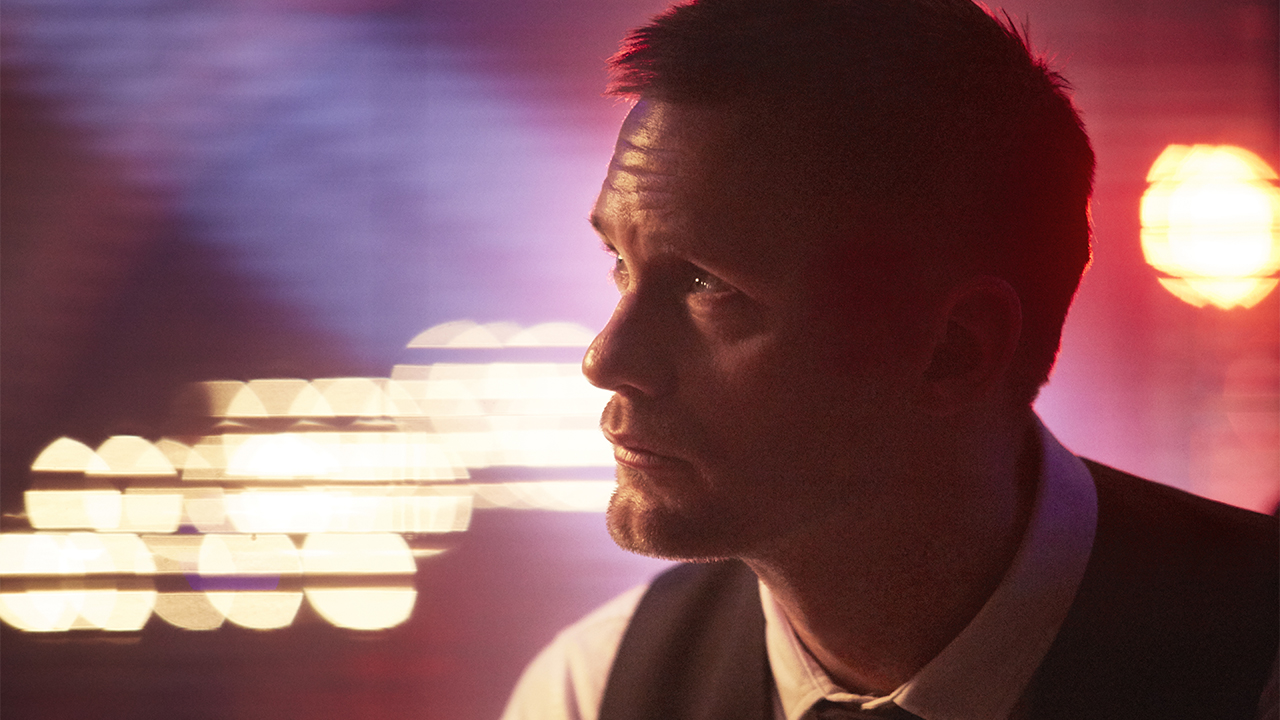
Duncan Jones’ Mute has finally hit Netflix, and lo, the responses are mixed. Personally, I rather like the latest one from the director of Moon and Source Code, finding the focus on character dynamics over sci-fi storytelling rather refreshing. It’s also a film that (despite skirting around the details of its cyberpunk-tinged future) delivers a hell of a lot of interesting world-building and implied narrative over the course of its two hours.
Set in the same future as Moon - but some time afterward - and exploring life on Earth, there’s a great deal of cool stuff going on, both in and around Mute’s main story. So, having watched it with notepad in hand, by way of no small amount of rewinding, still-framing, and squinting, I thought it wise to break down all the details I accrued and questions I found myself asking, as I worked my way through to the mystery’s conclusion. It goes without saying that the below feature contains spoilers for the entirety of Mute, so if you haven't seen the film yet, and want to, look away now and come back once you've watched it in full.
1. How did the end of Moon get resolved?
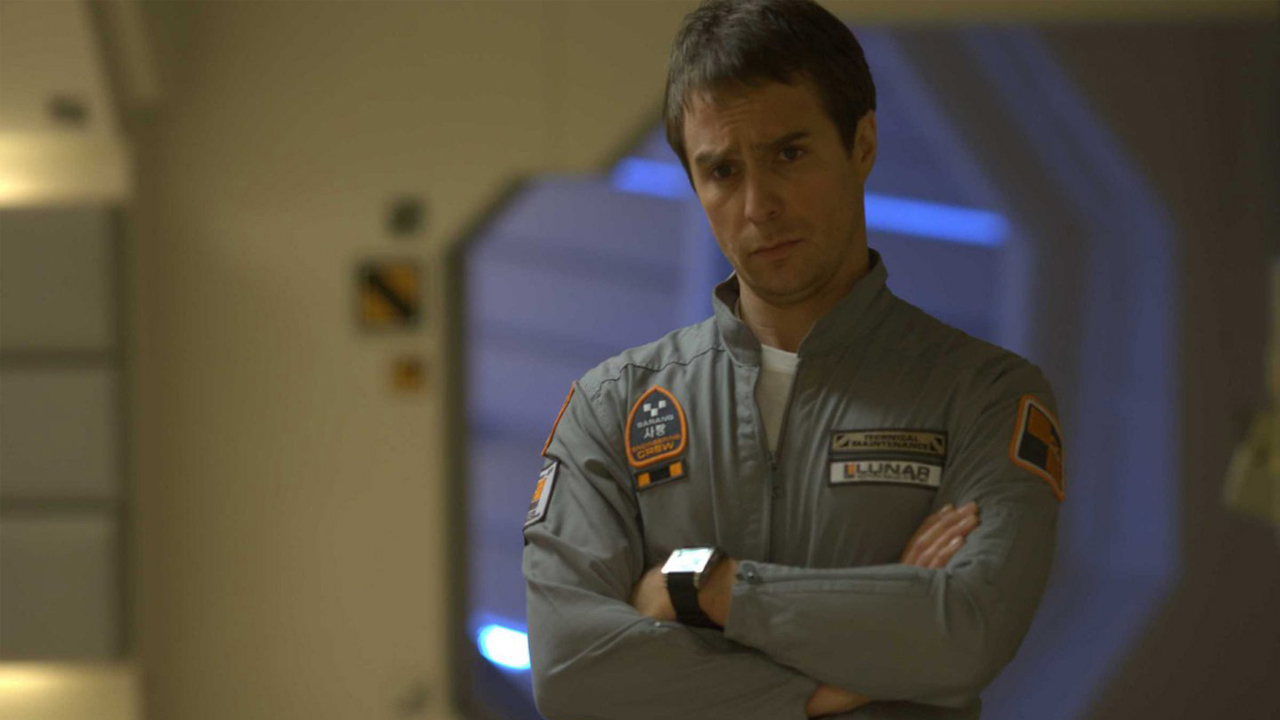
This is the biggest thing that long-time Duncan Jones fans will want to know, going in. With Mute confirmed to exist in the same world as Moon, the director’s near-flawless debut feature, what exactly happened to Sam Bell’s clone when he got back to Earth? Mute does answer that question. Mostly.
Throughout the first half of the film, we see multiple TV clips of the evolving court case between Clone Sam (and a great many more of him, now apparently awoken from stasis) and his former employer/owner, Lunar Industries. The more observant will also notice a “Free the 156” campaign poster in a street scene a little earlier, displaying Sam’s image. Clearly, however long Sam has been back on Earth (it’s unclear how much later Mute is set), his story has long-since gone public and become major world news.
As for how the case plays out, it’s not entirely clear. For starters, the very wording of that poster implies that the clones are still being treated as the property of their employer, and that perhaps they did not enjoy the instant freedom hoped for at the end of Moon, nor did the revelation take Lunar Industries down, despite damaging the company’s reputation.
To throw an extra spanner in the works, we see the original Sam (who the clones are, well, clones of) in the courtroom, getting into a heated argument with several of his progeny over who actually is the 'real' Sam Bell. This may well be the real crux of the case, the clones’ existence causing a major identity clash with their originator now that they all exist on the same planet. Thus, their release might have been delayed until the matter of their autonomy (and the wrangling of their individual identities) can be dealt with. We never explicitly see the result of the case, but there is a brief shot later on of a few of the Sams being interviewed standing outside the courthouse – the first time we’ve seen them in an outdoor environment – implying an eventual win. Hopefully.
2. Why did Leo move to the city?
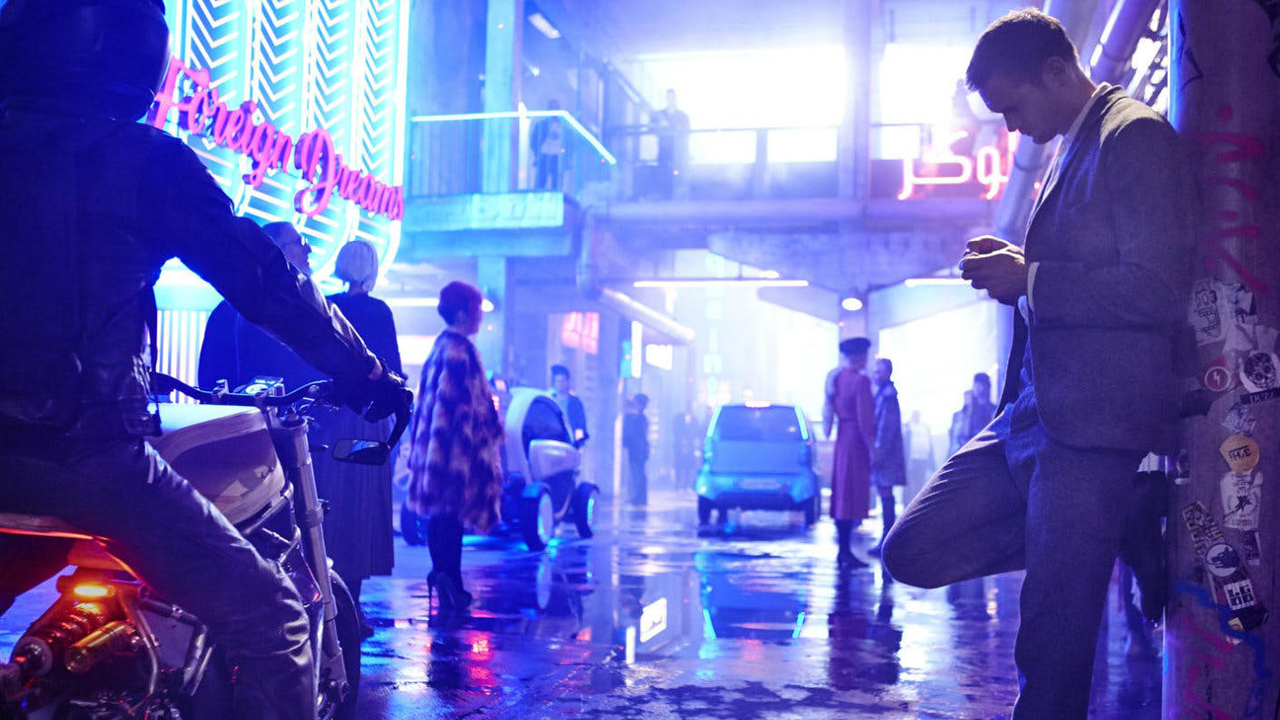
Interesting one, this. Leo is Amish. And despite having left his ultra-traditional family – who, on religious grounds, refused to allow voice-saving surgery after his childhood boating accident – he still largely subscribes to the ‘no modern technology’ philosophy associated the church. So why then, has he chosen to live in central future-Berlin, a place dripping with tech, where digital services provide the backbone to day-to-day life? Of course, in the present day, not all sections of the Amish church are hardline against all tech, but we see a newspaper headline early in the film implying a major push back to traditional values. And Leo certainly seems to live in a pretty traditionalist way.
Sign up for the Total Film Newsletter
Bringing all the latest movie news, features, and reviews to your inbox
His means of investigating Mute’s core mystery are resolutely analogue. He uses paper, pencils, and phone books instead of engaging with the ‘net, drives a traditional, ground-based motor car rather than anything of the contemporary flying variety, and has doesn't have a mobile phone until Naadi buys him the most lo-fi one she can get her hands on. And most obviously, he has continued to shy away from having the operation to replace his damaged vocal chords with a mechanical substitute.
So why did he leave the rural life? While it seems he didn’t particularly choose to give up his religious background, it’s feasible that he moved to the city during the adolescent period of relaxed doctrine known as Rumspringa, and chose not to return home. Thus, Leo is an interesting blend, being a social moderate while maintaining a fair chunk of his traditional belief system. He certainly doesn’t exhibit any of the isolationist principles that come with some Amish communities – quite the opposite, in fact – so it seems that he’s simply chosen to adopt a non-traditional happy medium. Not that he particularly seems to despair of technologically-enabled speech when it’s finally forced upon him.
3. What’s with all the dolphins?
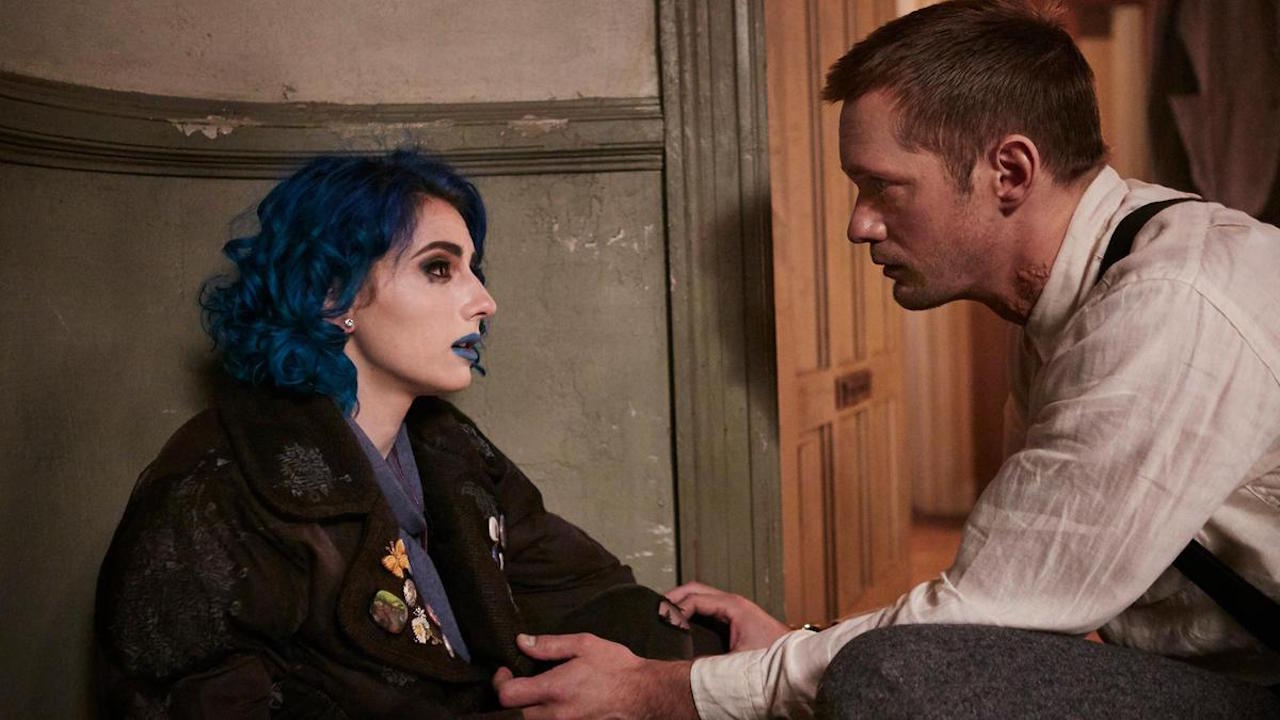
There’s a heck of a lot of water-based imagery around Leo. He carves and draws dolphins on literally everything, and he has a strange, almost militaristic practice of chugging huge glasses of water after taking a deep, ritualistic breath beforehand. He even carves dolphins into the frame of the bed he’s making for Naadi and himself. It’s obvious that the aquatic world is something close to his psyche.
My interpretation? He’s embraced it after nearly drowning as a child. Perhaps subconsciously, perhaps as a deliberate means of overcoming a childhood phobia arising from his trauma. Dolphins are, after all, mammals that have conquered the life aquatic, so they make a fitting symbol. And that water-glugging, breath-holding habit of his (as well as the swim training we see him engage in) seems a clear bid at physical empowerment. And it certainly pays off in the end…
4. What’s the global political situation?
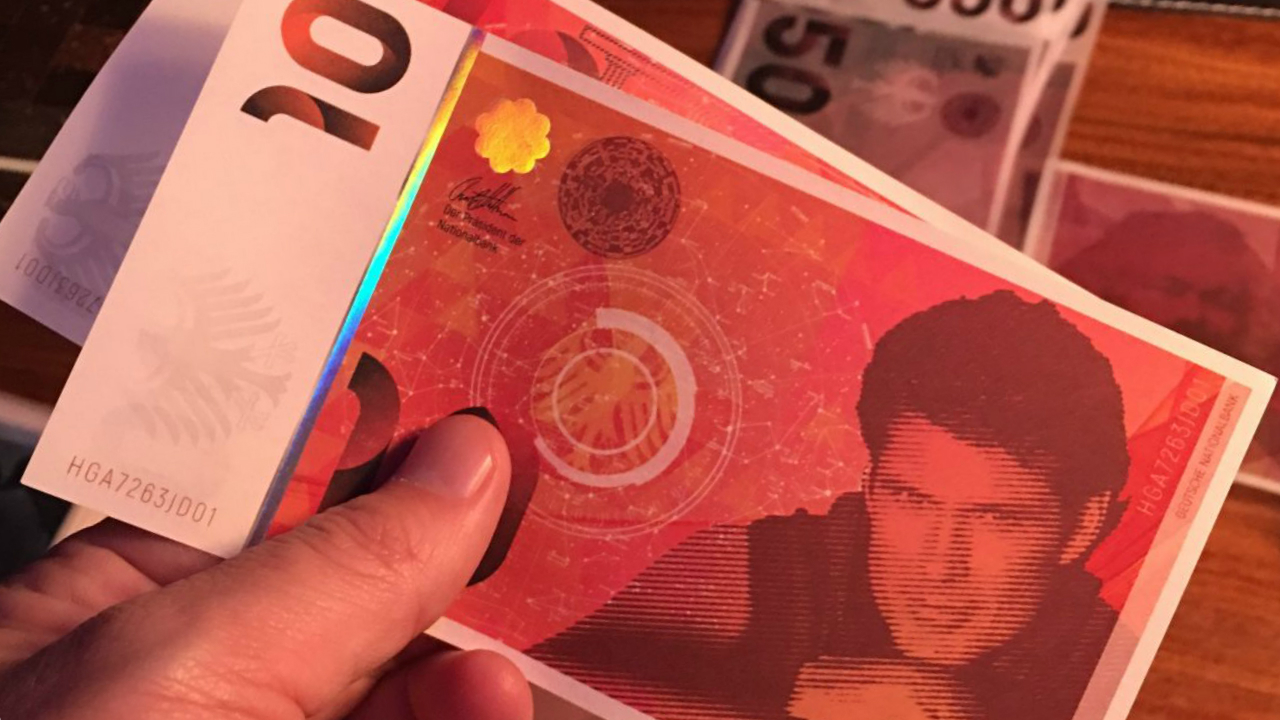
There are many hints of a complex background world in Mute. For starters, we know that the US is embroiled in a major overseas military situation. And we also know that its army is facing a desertion crisis, given Bill's fugitive status, and the unambiguous US government campaign to encourage informants to turn in the AWOL. Clearly, this war has been going on for a long time (assuming that Bill has been hiding out in Berlin long enough to father a walking, talking daughter with Naadi before she met Leo), and for desertion to have become such a major issue, it hardly seems a popular one. The best guess as to its nature? It’s a continuation, several decades hence, of the US presence of Afghanistan.
One of the briefly glimpsed newspapers in Mute tells of US/Afghan co-operation on missions in the Middle-East, which strongly hints at an evolved continuation of the present-day situation. And it’s also worth noting that the drone-powered takeout service that features several times in the movie is detailed to be delivering Afghan food, if you look closely at some of the boxes, possibly implying a greater cultural prominence for the country on the world stage.
On top of all this, there’s the question of the situation in Germany. Given that it appears a (relative) haven for US deserters, the country seems to be pretty neutral in terms of the war and wider international relations, though obviously it has allowed the US army in to look for missing soldiers. But it’s also notable that Germany looks to be using its own currency again, a Hasselhoff-faced variant of the pre-Euro Deutschmark. This certainly implies some changes to the EU, particularly the notions that the organisation may have disbanded, that Germany may have simply left, or that the country might even have come to dominate the continent in some way.
Bill makes a couple of snarky remarks about invasion and Nazis over the course of the movie, and these could just be hackneyed historical jibes (Berlin’s culture in Mute certainly seems far too liberal for any form of fascism to be in place, which also resonates with the country’s present-day culture), but it’s also possible that Germany has indeed risen to more explicit superpower status in one way or another.
5. Is that a big, ‘90s video game reference?
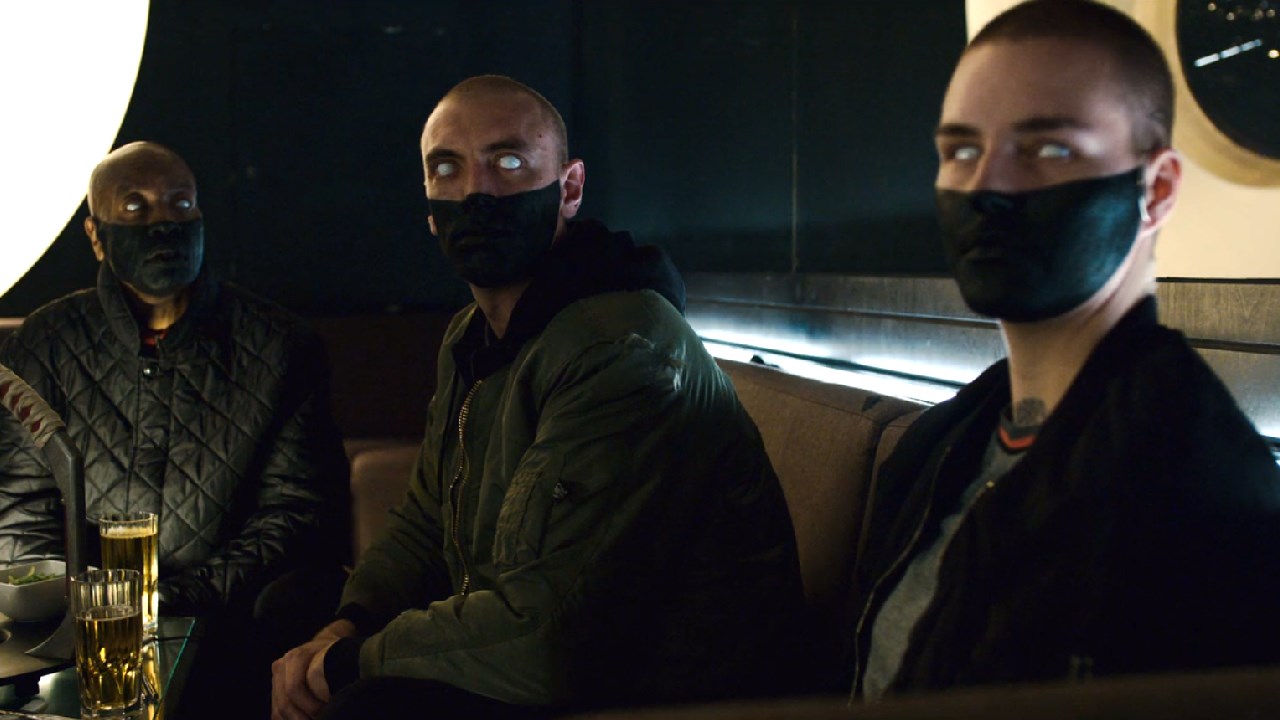
When Leo confronts Nicky at the restaurant, the pimp points out his hired muscle by way of an attempt at intimidation. We see three men with black, surgical-style masks (possibly painted) over their lower faces, framing whited-out eyes. Nicky makes a curious choice of wording when he refers to the heavies not as a gang or a mob, but as a syndicate. Flash back to 1992, when British game developer Bullfrog released a cyberpunk action-strategy game called Syndicate. Compare its box-art to the characters Nicky points out in the restaurant scene. There is no way this is a coincidence. No way at all. Oh no, not at all.
6. Was Duck in love with Naadi?
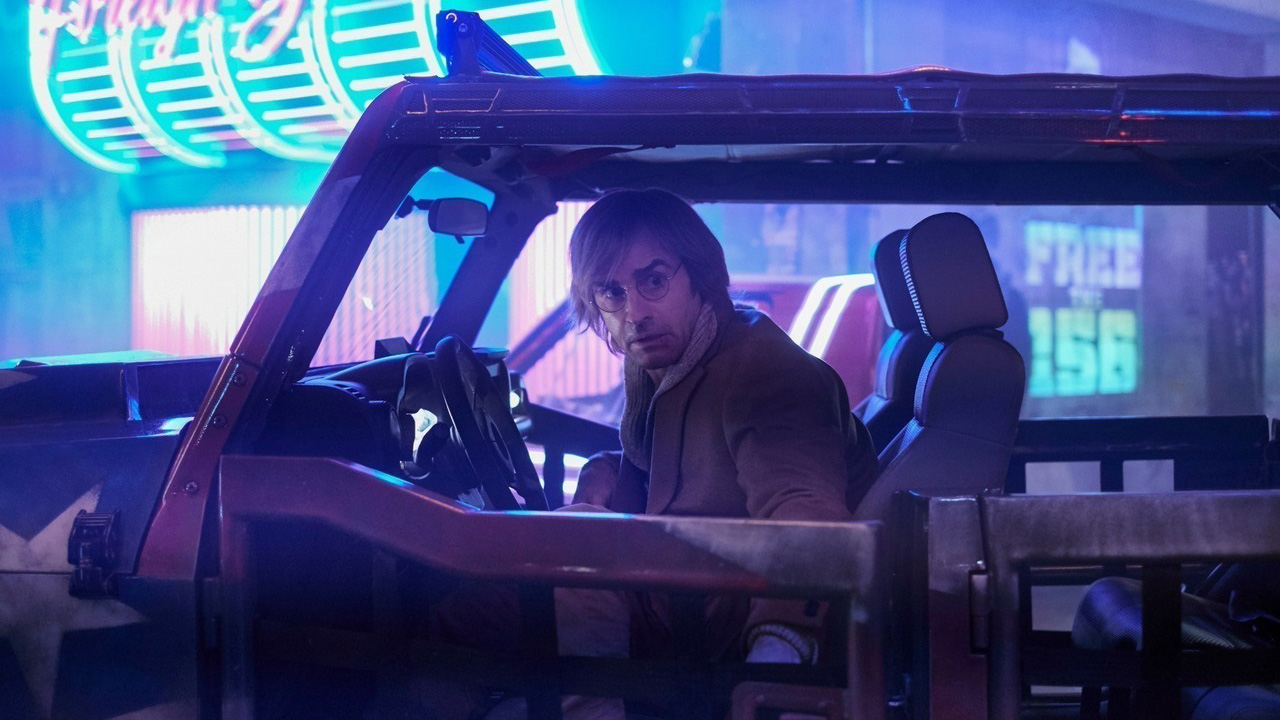
I’m stretching a bit here, but there’s at least a hint of a complex past dynamic between Bill, Naadi, and Duck toward the end of the film. It’s tough to put a finger on any one, explicit piece of evidence, but like everything between the two ex-military men, there are a heck of a lot of layers going on during Mute’s conclusion. Duck’s clear willingness – eagerness, in fact – to let his much-loved pseudo-brother die, for instance. That can’t just be about not wanting to get collared at the hospital.
On top of that, the way that Duck lets Bill die slowly while torturing him about the potential fate of his daughter, feels like the eruption of a long-festering grudge. They’ve recently had a falling out over Bill’s disgust at Duck’s paedophilic tendencies, but that run-in ultimately ended with a tone of support and reconfirmed love. That alone doesn’t feel enough to flip the dynamic between these two so brutally, after so long. All this in mind, I can’t help suspecting a hint of bitterness in Duck’s tone when he later explains to Leo how close he, Bill, and Naadi were before she got pregnant. Yes, he could simply be jealous of how the three’s dynamic changed once a child became involved, but given how things ultimately play out, something deeper seems to be going on.
If you can't get enough of the streaming services film offerings, check out the best movies on Netflix right now. Alternatively, here's our list of the best shows on Netflix.



